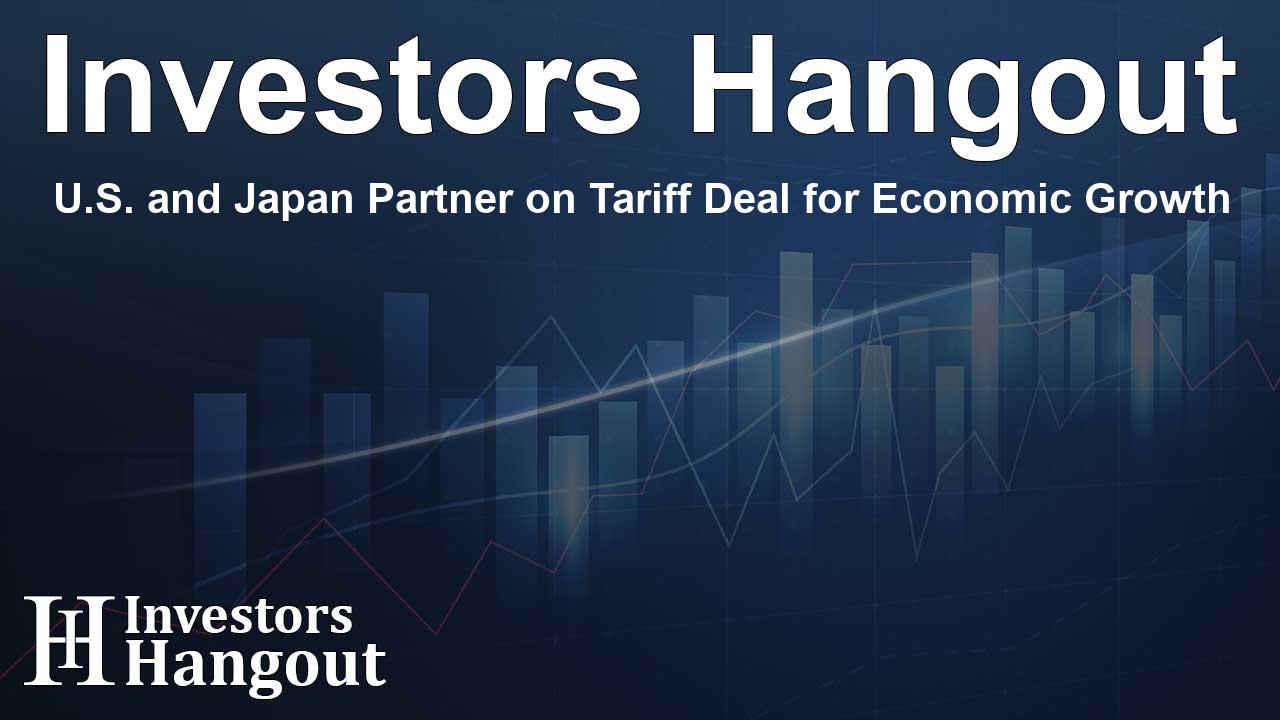U.S. and Japan Partner on Tariff Deal for Economic Growth

Understanding the U.S.-Japan Tariff Deal
Howard Lutnick, the Commerce Secretary, has revealed exciting news regarding a significant financial arrangement between the U.S. and Japan. This partnership involves profit-sharing from projects that Japan is funding through a newly established tariff deal, which is set to enhance economic cooperation between the two nations.
Details of the Profit-Sharing Arrangement
The core of the agreement stipulates that profits generated from these projects will initially be shared equally between the U.S. and Japan until Japan recovers its investment amounting to $550 billion. Following this initial phase, the profit distribution will shift dramatically in favor of the U.S., with a 90% allocation to American interests and only 10% for Japan.
Clarification from Lutnick
Lutnick expressed confidence, stating, "After that, it's 90/10, in favor of America." This not only illustrates the significant benefits for the U.S. but also highlights Japan's long-term commitment to this investment strategy.
Implications for Japanese Taxpayers
An essential factor in this deal is the assurance that Japanese taxpayers will not be responsible for the costs associated with long-term projects funded by their investment. Lutnick emphasized that, as part of this arrangement, Japanese consumers will experience lower tariff rates, which should be a welcome change for them.
Job Creation and Domestic Investment
The U.S. government is set to deploy a workforce to undertake various construction projects funded by this initiative. A notable aspect of the deal is the structure of financing; the funds will be borrowed by Japan to support these projects, which range from the development of nuclear power plants to antibiotic production, thereby bolstering domestic manufacturing capabilities.
Evolution of U.S.-Japan Trade Relations
This recent arrangement builds on a history of negotiations aimed at improving trade ties. Earlier in September, significant progress was made when the U.S. announced the reduction of tariffs on a range of Japanese goods, including automobiles and auto parts, following the agreement of this substantial trade deal.
Resolving Trade Uncertainties
This agreement offers clarity amid ongoing discussions regarding tariffs. Japan's chief tariff negotiator, Ryosei Akazawa, confirmed that this will help resolve timing uncertainties related to the deal's implementation, much to the relief of both governments and businesses involved.
Historical Context and Legal Landscape
The timing of this agreement is particularly noteworthy, as it unfolds under a cloud of legal challenges facing several of Trump's tariffs. The U.S. Supreme Court is expected to hear appeals concerning lower court decisions that deemed many of these tariffs illegal, thereby influencing future trade policies significantly.
Future Prospects and Opportunities
The U.S.-Japan tariff deal presents a pivotal opportunity for both nations to strengthen their economic partnership. With a focus on mutual benefit and international cooperation, this agreement could pave the way for further collaborative efforts in areas beyond just trade and investment.
Frequently Asked Questions
What is the primary focus of the U.S.-Japan tariff deal?
The deal focuses on profit-sharing from projects funded by Japan, aiming to bolster economic growth while minimizing costs for Japanese taxpayers.
How will the profits from the investment be divided?
Initially, profits will be shared equally until Japan recoups its $550 billion investment, after which the U.S. will receive 90% of the profits.
What assurances are given to Japanese taxpayers?
Japanese taxpayers will not bear the long-term costs of the projects funded by this investment, and they will benefit from lower tariff rates.
What types of projects will the investment support?
The investment will support a range of projects, including domestic manufacturing enhancements like nuclear power plant construction and antibiotic production.
What legal challenges face this deal?
The deal is unfolding amidst legal uncertainties regarding various tariffs implemented during Trump's presidency, with ongoing court appeals that may affect future trade policy.
About The Author
Contact Kelly Martin privately here. Or send an email with ATTN: Kelly Martin as the subject to contact@investorshangout.com.
About Investors Hangout
Investors Hangout is a leading online stock forum for financial discussion and learning, offering a wide range of free tools and resources. It draws in traders of all levels, who exchange market knowledge, investigate trading tactics, and keep an eye on industry developments in real time. Featuring financial articles, stock message boards, quotes, charts, company profiles, and live news updates. Through cooperative learning and a wealth of informational resources, it helps users from novices creating their first portfolios to experts honing their techniques. Join Investors Hangout today: https://investorshangout.com/
The content of this article is based on factual, publicly available information and does not represent legal, financial, or investment advice. Investors Hangout does not offer financial advice, and the author is not a licensed financial advisor. Consult a qualified advisor before making any financial or investment decisions based on this article. This article should not be considered advice to purchase, sell, or hold any securities or other investments. If any of the material provided here is inaccurate, please contact us for corrections.
